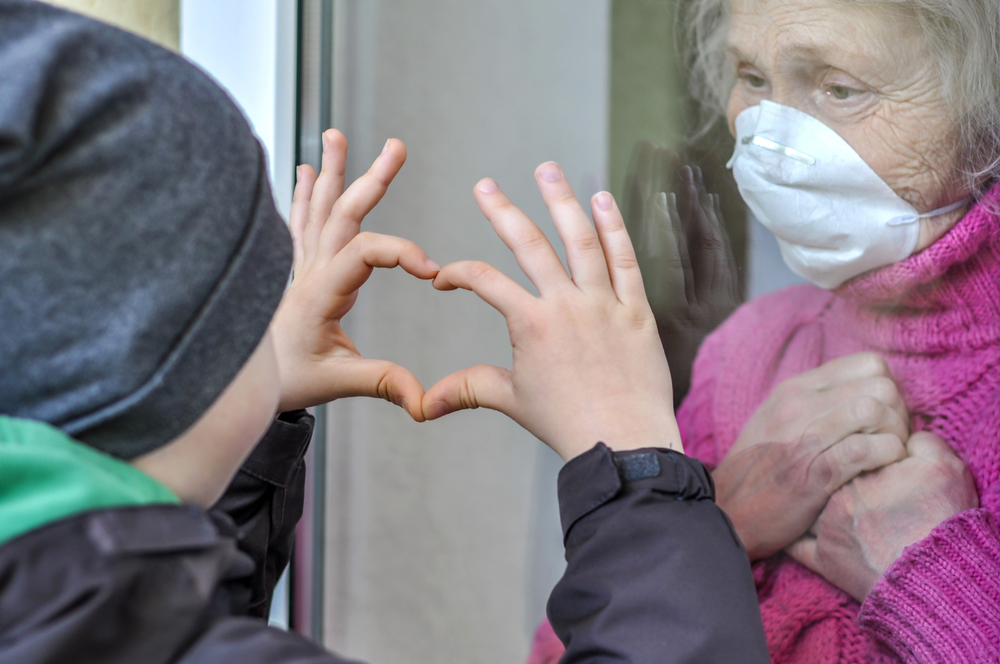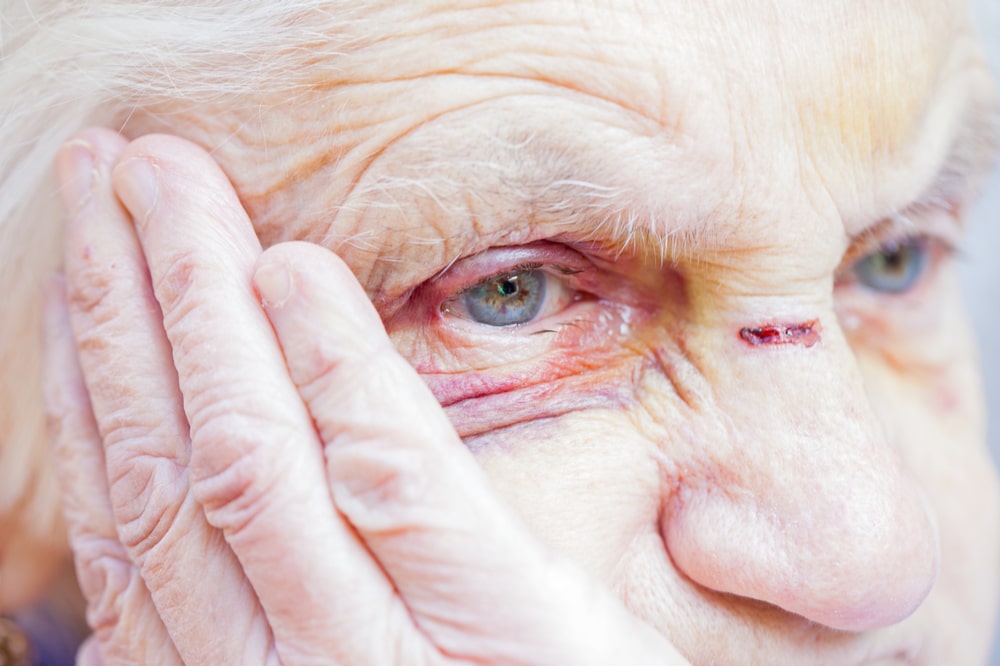There is nothing worse than losing a spouse or a parent and many people have lost a loved one from COVID-19 in a nursing home. Losing a spouse or a parent can feel like losing a part of ones’ self and may be the most challenging thing that a person ever experiences. One thing that can add to grief is wondering whether or not the death could have been prevented had the deceased individual received better care. While nursing homes throughout Schaumburg and the surrounding areas of Illinois have a duty to treat their patients with a high level of care, sometimes, this duty is not maintained and the health consequences are significant or even fatal.
COVID-19 In Nursing Home
During the COVID-19 pandemic, some nursing homes were ravaged and many residents died as a result of complications from the virus. So, there are questions of whether or not a nursing home can be held liable for the death of their residents from COVID-19.
If your spouse or parent died from COVID-19 while a resident of a nursing home and you are wondering whether or not you can sue, here’s an overview of what you should know about nursing home liability for a coronavirus-related death. If you think that you might have a case, please call our nursing home abuse and wrongful death lawyers at Claim Your Justice for a free consultation where we can learn more about your case and provide you with information that is specific to your situation.
What Is a Nursing Home’s Duty of Care?
When thinking about a nursing home’s liability, which means legal responsibility, for a nursing home resident’s harm or death, one must first understand a nursing home’s duty of care. It is only when the duty of care to a resident is breached that a claim for monetary damages exists.
A nursing home owes an elevated duty of care to the patients and residents it treats, and the healthcare professionals within a nursing home, such as the doctors and nurses, are bound by the legal standard of care.
Typically, the standard of care is described as the same degree of care that another professional of similar background or training would exercise in the same situation.
In the case of a nursing home, a nursing home may be found liable if a staff member fails to exercise their professional duty of care by treating a nursing home patient with the same level of care that another professional would have exercised. The nursing home can be held liable if it fails to implement reasonable practices and protocols, and this failure leads to a nursing home resident’s harm or death. A nursing home can also be held liable when a law or regulation is violated and this violation leads to residents’ harm or death.
What Is Nursing Home Abuse or Neglect?
When a nursing home or its staff members engages in abuse or neglect, the duty of care owed to a resident has been breached.
Nursing home abuse refers to abusive actions that are committed with intent. Abuse falls into four categories:
- Physical abuse
- Sexual abuse
- Emotional and psychological abuse
- Financial exploitation
Nursing home neglect, on the other hand, does not involve intent. Nursing home neglect is often a result of understaffing, poor nursing home staff training, cost-cutting measures, or an inadequate staff-to-patient ratio. Nursing home neglect may include things like failing to ensure that residents are properly bathed and groomed, failing to regularly move residents who are bedridden to prevent bedsores, failing to assist residents during mealtimes to ensure they get the nutrition and hydration they need, and more.
Negligence, the failure to exercise the required degree of care, in regards to this blog, was the cause of the spread of coronavirus in nursing homes. If a nursing home resident contracted the coronavirus because of nursing home negligence, the nursing home could be held liable.
Wrongful Death Claims From COVID-19 In Nursing Home
Similar to a personal injury claim, a wrongful death claim exists when the wrongful or neglectful act of one party leads to the death of another. In order to bring forth a wrongful death claim against a nursing home, you will need to prove that the nursing home breached the duty of care owed to the nursing home resident by acting wrongfully or negligently and that the breach of the duty of care was the proximate cause of death.
Actions that Could Lead to the Spread of COVID-19 In Nursing Home
There are a handful of actions that could lead to the spread of COVID-19 within a nursing home, some of which breach common sense and best practices; others of which may breach recommendations or even laws set by the state and various agencies, such as the Centers for Disease Control and Prevention (CDC). Examples of these include:
- Failing to provide staff and residents with masks
- Failing to properly sanitize patients’ rooms
- Failing to check the temperatures of staff members before allowing them to treat patients
- Failing to require infected staff members to remain at home
- Failing to properly wash hands and change masks between patients
- Failing to require staff to wear personal protective equipment (PPE) or undergo COVID-19 test to prevent transmission of the virus between staff and patients
- Failing to train staff on best practices for limiting the spread of the disease
- Failing to provide adequate care to patients who became infected with COVID-19
- Failing to quarantine infected patients to prevent the spread of the disease to other residents
- Failing to maintain proper ventilation within the nursing home
If you think that one of the above actions, or another negligee action not listed, may have been the cause of your loved one contracting the disease, call Claim Your Justice.
Nursing Home Immunity & COVID-19 in Illinois
On May 13, 2020, the state of Illinois issued an order providing immunity for medical facilities, such as nursing homes, from liability for residents’ deaths related to COVID-19. Specifically, the Executive Order found that all healthcare professionals and healthcare facilities are “immune from civil liability for any injury or death relating to the diagnosis, transmission, or treatment of COVID-19….” This does not mean that the surviving loved ones of those who died as a result of a coronavirus-related infection in a nursing home do not have any claim for damages against the nursing home, but it does mean that for as long as the Executive Order stands, claims can only be brought forth if plaintiffs are able to prove gross negligence or willful misconduct. Specifically, the Executive Order states “this section is inapplicable if it is established that such injury or death was caused by gross negligence or willful misconduct of such Hospital or Health Care Professional if 20 ILCS 3305/15 is applicable, or by willful misconduct if 20 ILCS 3305/21 is applicable.
Gross negligence is a lack of care that demonstrates a reckless disregard for the safety of others, which may be so great that it appears to even be a conscious disregard for others’ wellbeing; willful misconduct means that the party knew that it was acting negligently but decided to do so anyway — in other words, there was intent. While it is more difficult to prove gross negligence or/and willful misconduct, it is not impossible, and you should still consult with a Claim Your Justice attorney if you think that you have a case.
Why You Should Consult with a Nursing Home Abuse and Neglect or Wrongful Death Attorney Today
Whenever nursing home abuse or neglect occurs, and whenever the negligence of a party leads to the death of another, it is essential to consult with an attorney. Because of the protection from liability in Illinois, consulting with a lawyer is even more critical than before. Our attorneys will provide you with a free consultation and provide you with their professional assessment and analysis, and then advise you on how to proceed. If our nursing home abuse and neglect attorney thinks that you have a case, we can represent you on a contingency fee basis. This means that there is no fee unless we recover money for the injured person or their family.
Call the Law Office of Claim Your Justice Today
At the law office of Claim Your Justice, our Schaumburg, IL wrongful death and nursing home abuse lawyers understand the pain you’re experiencing after losing your spouse to COVID-19 in a nursing home. When you call our firm, we can review your case at no cost to you and help you to understand your options. Call us today at 847-434-3555 or send us a message online to learn more about how we can help.


